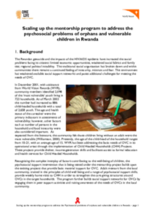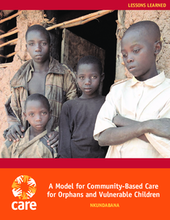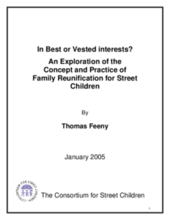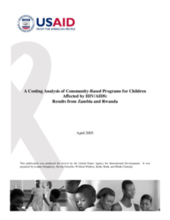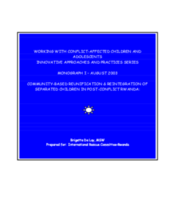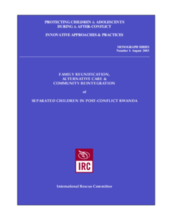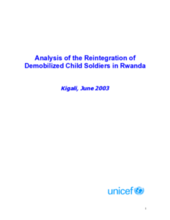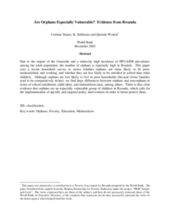This country page features an interactive, icon-based data dashboard providing a national-level overview of the status of children’s care and care reform efforts (a “Country Care Snapshot”), along with a list of resources and organizations in the country.
demographic_data
childrens_living_arrangement
children_living_without_bio
adoption
social_work_force
key_stakeholders
Key Stakeholders
Add New DataOther Relevant Reforms
Add New Datadrivers_of_institutionalisation
Drivers of Institutionaliziation
Add New Datakey_research_and_information
Key Data Sources
Add New DataReport on National Assessment of Centres caring for Children with Disabilities in Rwanda
National Integrated Child Rights Policy
Country Care Review: Rwanda
Prevalence and number of children living in institutional care: global, regional, and country estimates
The Way Forward Project Report
Community-Based Child Protection Mechanisms in Refugee Camps in Rwanda: An Ethnographic Study
Displaying 171 - 180 of 188
Outlines the results of World Vision Rwanda’s mentorship program for children in child-headed households and other OVC. Includes challenges and lessons learned.
A lessons learned document reviewing impacts of a community-based care and mentoring program for child-headed households in Rwanda.
Examines current conceptual and practical issues relating to reunification of street children with their families. Includes guidelines for organisations operating or starting reunification programmes and suggests directions for future research.
A report which analyzes the costs associated with various types of interventions for orphans and vulnerable children, including institutional care, tracing and reintegration, and community-based care.
Discusses the interplay between informal and formal safety net mechanisms in supporting orphans and children made vulnerable by HIV/AIDS. Includes recommendations for strengthening traditional family and community safety nets weakened by the epidemic.
This paper hopes to contribute to a sorely under-documented field of how to reintegrate institutionalized children back into the community in a post-conflict environment. It provides a brief description of IRC Rwanda’s Reunification and Reintegration Program for Unaccompanied Children, emphasizing its innovative nature and promising field methodologies. It includes a review of core principles and a programmatic overview of center and community-based work, outlining key steps in the process. It also provides a brief review of good practices and offer some points of reflection for future work with children in post-conflict situations.
This paper hopes to contribute to a sorely under-documented field of how to reintegrate institutionalized children back into the community in a post-conflict environment.
Follow-up analysis of reintegration for demobilized child soldiers in Rwanda. Concludes with lessons learned for successful reintegration.
This research paper explores the condition of orphaned children in Rwanda. The paper urges the design of appropriate social protection mechanisms, including differentiated policy responses, conditional cash transfers and increased access to education.
A sample survey designed to be used in interviewing parents and guardians of children ages six to twelve years old. The questions assess household financial security, socio-demographic and community characteristics, psychosocial intervention exposure, income generation intervention exposure, health status, HIV/AIDS prevention exposure, legal rights, and coping skills. Includes sample consent form.

